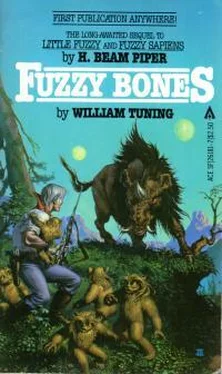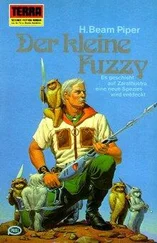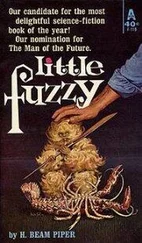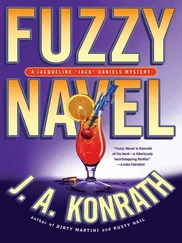"Well, hell," Beltran said deferentially, "them guys got their own camp set up over there. Why they need to eat with us, anyway?"
Helton held up the same two fingers. "Common courtesy, for one thing. There's something in the hymn about Marines being kind to civilians. For another, if we've found what I think we've found, we're going to have to violate some of their territorial rights; and a man who's sat at your table is easier to talk to about that kind of thing."
Beltran nodded affirmatively. "Yeah, I get you, Phil. You think I should lay on something special?"
"Not a chance," Helton said. "You just run the menu and make sure it's cooked right. Those are a bunch of smart old ducks. If they think we're trying to butter them up we could get a lot of political blowback. Just be nice and don't 'sir' them to death."
Beltran clenched his cigar back in his teeth. "Got it," he said. "No D.R.O.s.
Let 'em go through the line."
"Now you 're cooking, Sarge," Helton said. "I have to go collect my two tame officers and join the governor and his friends at their airboat for cocktails.
We'll be wandering back over here around 1800, so start one of your veldbeest roasts a little late."
As the senior officer, Commander Bates preferred the casual invitation after they were all comfortably situated and starting to chat. "By the way, gentlemen; since you will likely be staying over tonight, we would be honored if you could join us in the mess for dinner."
"Why that's very kind of you, Commander," Ben Rainsford said. "I was just thinking about that. I've got to get back to Mallorysport, but there's no point in my starting out this late in the day. Better to arrive early tomorrow."
"We won't know a great deal about this until we get reports from Helton, Bates, and Gaperski," Pancho Ybarra said.
There was a pause of silence, during which the soft clicking sounds of the sunscreens which kept direct radiation out of Space Commodore Alex Napier's domed office could be heard.
"Our own satellite readouts show that they've dug up something pretty big.
It's made of titanium, mostly. But we have no idea yet as to what it is. We'll probably get reports tonight that contain estimates of the situation."
Lieutenant Commander Ybarra was keen on his job--Liaison Officer: Extraterrestrial Life-Forms. He had originally been stuck with deciding for the Navy if Fuzzies were sapient; now he had a chance to get some of the
"glory" back from that ghastly job-ghastly because it could have been a career-buster for him if he had made the wrong decision.
Captain Conrad Greibenfeld, the Exec, sighed. "Well, I hope we get something out of it. We have a company of Marines and a heavy equipment section tied up in it."
"Bosh, Connie," Napier said. "There's nothing on the property book about it.
As for Casagra's company, that comes under "Friendly Natives, Policing Safety Of.' "
"What about this Marine enlisted man?" Greibenfeld said. "Bit unusual to put him in charge of auditing the dig, isn't it?"
"Master Gunnies are a bit unusual," Napier remarked drily. "Their job requires abilities of inductive reasoning and intuition that would crack the skull of the best Intelligence officer in The Fleet."
"Steve Aelborg wouldn't be glad to hear that," Greiben-feld remarked.
Ybarra cleared his throat. He sensed one of those little senior officer tiffs coming and felt obliged to try and head it off lest he get hit with a wild shot. "I think what the Captain means, sir, has to do with credibility, or credentials, or experience, or something like that." He looked expectantly at Greibenfeld.
"Yes, Alex," Greibenfeld said. "Is this guy really as good as they say he is?"
Napier carefully knocked the heel out of his pipe and stared into the air for
a moment. "He is," he said. "I knew him on Baldur when I was a boot lieutenant and he was a master sergeant. He pulled my butt out of the fire; probably saved my career in the bargain."
Greibenfeld raised his eyebrows. He had the notion that enlisted men had to be watched all the time and that the officer corps was something like a mother hen who had to keep the ratings from injuring themselves. "How in Nifflheim could a Master Sergeant-" he began.
Napier cut him off. "It had to do with some foolishness over a woman, as such matters often do," he said. "Let's leave it at that."
Phil Helton sloshed the inch or so of tepid highball in his glass and stared at it for a moment. "Something like us they are, but not quite the same," he said. "People, though, that we have not met-or at least they were when this thing went down, here. They may have died out while we were trying to land some plumber's nightmare we called a space vehicle on Mars. This thing has been here as long as Homo s. terra has been in space-probably longer."
"On the other hand," Holloway added, "they may not have died out. We may have just been missing connections with them. Space-there's an awful lot of it."
"Oh, poppycock," Ben Rainsford snorted. "We've had the Dillingham Drive and been in hyperspace for nearly five centuries. If there was another star-traveling race, we would have met them by now."
"Not necessarily," Commander Bates remarked. "There was an early theory about that which the textbooks call 'Fogleberg's Folly.' "
"Wasn't he the guy who said 'You can't make an omelette without breaking eggs'?" Gerd van Riebeek said.
"I thought that was Lenin," Ahmed Khadra said.
"I thought it was Abraham Lincoln," George Lunt said.
"I don't know if he said it or not," Bates said exasperatedly.
Holloway jumped in and broke up the digression. "What was his theory?" he asked. "I'm not familiar with it."
"Most people aren't," Bates said, "-outside the military, that is. Brigadier General Jerome H. Fogleberg, TFMC, had a theory about the distribution of intelligent races throughout the galaxy, which is known as 'Fogleberg's Folly,' a name which, by marking his peculiar position in history, might indicate that Fogleberg was somewhat off the mark in his concept.
"Fogleberg was known affectionately to his troops as 'Ol' Fogey,' and his unusual theory is thought to have arisen from his preoccupation with the reading of romantic literature having to do with the noblesse oblige of the mercenary soldier's trade. His contemporaries often said of him that he thought morale was something that came out of a bass drum."
"Sounds rarified, all right," Rainsford said. "I've never heard of it."
"You're not an astrogator," Bates said. "It falls in the category of don't-let-this-happen-to-you information.
"Fogleberg," he continued, "assumed that the distribution of stars by spectral class was uniform in space-not a bad idea when you're dealing with small
volumes of galactic space. But, he also assumed they were evenly distributed in temporal terms-that is, in terms of when the novae popped which created them.
"He set out with a two-ship expedition to chart a new volume of space for star distribution. If his distribution theory was correct, then subsequent exploration should turn up a given number of intelligent races."
"Did it work?" Gerd asked.
Bates shook his head. "Fogey was so busy looking for active stars that he missed a black hole."
"What happened?" Jack asked.
"No one knows for sure," Bates replied. "His companion ship saw his ship wink off the screen and they never found a trace. Since the event horizon of a black hole is quite different at hyperspeed, Fogey may now be a coat of paint on the body, or his ship may have dispersed into free atoms floating around space, or himself, ship, and crew may be wandering around in an alternate universe trying to figure out what happened."
"I get it," George Lunt said. " 'Fogleberg's Folly' was that he became the victim of his own thinking."
Читать дальше












